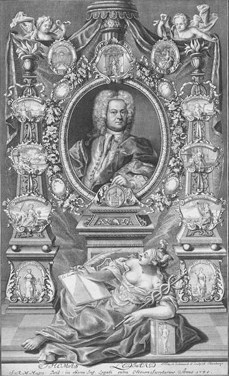Related Research Articles

Edmund Beaufort, styled 4th Duke of Somerset, 6th Earl of Somerset, 3rd Marquess of Dorset, 3rd Earl of Dorset, was an English nobleman, and a military commander during the Wars of the Roses, in which he supported the Lancastrian king Henry VI.

Albert Frederick Pollard was a British historian who specialised in the Tudor period. He was one of the founders of the Historical Association in 1906.

A herring buss was a type of seagoing fishing vessel, mostly used by Dutch and Flemish herring fishermen in the 15th through early 19th centuries.
Sir Patrick MacChombaichde Colquhoun was a British diplomat, legal writer and sculler who influenced early Cambridge rowing.
The post of Lord President of Munster was the most important office in the English government of the Irish province of Munster from its introduction in the Elizabethan era for a century, to 1672, a period including the Desmond Rebellions in Munster, the Nine Years' War, and the Irish Rebellion of 1641. The Lord President was subject to the Lord Deputy of Ireland, but had full authority within the province, extending to civil, criminal, and church legal matters, the imposition of martial law, official appointments, and command of military forces. Some appointments to military governor of Munster were not accompanied by the status of President. The width of his powers led to frequent clashes with the longer established courts, and in 1622 the President, Donogh O'Brien, 4th Earl of Thomond, was warned sharply not to "intermeddle" with cases which were properly the business of those courts. He was assisted by a Council whose members included the Chief Justice of Munster, another justice and the Attorney General for the Province. By 1620 his council was permanently based in Limerick.

Barnabas O'Brien, 6th Earl of Thomond, was Chief of Clan O'Brien and son of Donogh O'Brien, 4th Earl of Thomond. He succeeded his elder brother as earl in 1639 and was made lord-lieutenant of Co. Clare in 1640–41. He had his rents seized, 1644; admitted a parliamentary garrison to Bunratty Castle and went to England: joined Charles I; successfully petitioned parliament for £2,000 spent in the parliamentary cause.
Leonard Busher was an English pioneer writer on religious toleration, known as an early advocate of full liberty of conscience.

John Harington, 2nd Baron Harington of Exton, of Burley-on-the-Hill, Rutland was a young English peer and politician. He was the Lord Lieutenant of Rutland and Baron Harington of Exton.

Sir Edward Ford, was a member of the West Sussex gentry and inventor, who fought for the Royalists in the Wars of the Three Kingdoms. In his "History of the Rebellion", Clarendon judged that while 'a man of honesty and courage', Ford lacked experience of war and was an ineffectual soldier. However, he proved a reliable and trustworthy agent during negotiations between Charles I and Parliament in the period leading up to the 1648 Second English Civil War.

William Charles Thomas Dobson was an English painter.

Thomas Lediard (1685–1743) was an English writer and surveyor.

Peter Turner M.D. (1542–1614) was an English physician, known as a follower of Paracelsus. He also was a Member of Parliament, during the 1580s.
Sir Thomas Wilson (1560?–1629) was an English official. He is known as a government agent, Member of Parliament, Keeper of the Records, translator and author.
Edward King (1735?–1807) was an English barrister and writer. His best-known works were on castles and antiquities.

Francis Henry Salvin (1817–1904) was an English writer on falconry and cormorant-fishing.

Sir Charles Grave Hudson, 1st Baronet married well and became the owner of Wanlip Hall in Leicestershire. He was a director of the South Sea Company and became a High Sheriff of Leicestershire in 1783. He became a baronet on 21 June 1791.
Stephen Dowell was an English historian and legal writer, best known for his history of taxation in England.
George Matcham was an English civil servant of the East India Company, traveller and brother-in-law of Admiral Lord Nelson.
Simon Latham was an English writer on falconry.
Sir Horatio Palavicino, born in Italy, was a financier and political agent in England.
References
- 1 2 "Gentleman, Tobias". Oxford Dictionary of National Biography (online ed.). Oxford University Press. doi:10.1093/ref:odnb/10527.(Subscription or UK public library membership required.)
- 1 2 3 4 Pollard, Albert Frederick (1901). . In Lee, Sidney (ed.). Dictionary of National Biography (1st supplement). Vol. 2. London: Smith, Elder & Co. p. 273.
Attribution
 This article incorporates text from a publication now in the public domain : Pollard, Albert Frederick (1901). "Gentleman, Tobias". In Lee, Sidney (ed.). Dictionary of National Biography (1st supplement). Vol. 2. London: Smith, Elder & Co. p. 273.
This article incorporates text from a publication now in the public domain : Pollard, Albert Frederick (1901). "Gentleman, Tobias". In Lee, Sidney (ed.). Dictionary of National Biography (1st supplement). Vol. 2. London: Smith, Elder & Co. p. 273.